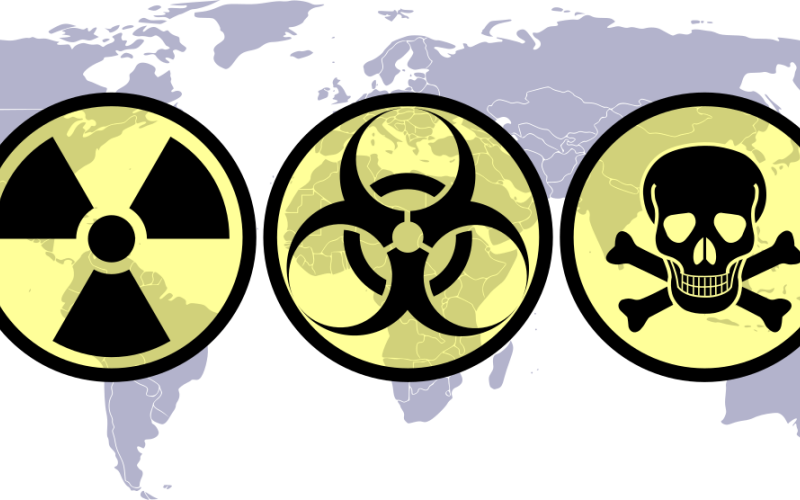CEHC, Rockefeller College Researchers Partner to Help Combat the Global Threat of Bioterrorism

By Mike Nolan
ALBANY, N.Y. (Sept. 29, 2022) — The COVID-19 pandemic’s devastating impact around the globe has brought renewed attention to the risk of biological threats – both natural and engineered.
Experts at the University at Albany are leading the way to ensure that vulnerable nations are prepared to confront adversaries who might be looking to take advantage of these weapons of mass destruction (WMDs).
Since 2020, the U.S. Department of State (DOS) has awarded $2.1 million for a series of projects that partners homeland security and international affairs researchers at UAlbany’s Rockefeller College of Public Affairs & Policy and College of Emergency Preparedness, Homeland Security and Cybersecurity (CEHC) to help government and industry leaders improve their preparation and response to threats involving WMDs.
Included is a newly announced $1 million grant that will employ customized red-teaming exercises and expert legal-regulatory consultations for government and industry partners in southeast Asia over the next two years.
The project adds to a growing collaboration between Rockefeller’s Center for Policy Research and CEHC’s Center for Advanced Red Teaming — both are supporting the entire DOS portfolio.
“There’s both state and non-state actors that are seeking to acquire the materials and know-how to create WMDs, including bio-weapons,” said Bryan Early, director of the Center for Policy Research and associate dean for research at Rockefeller College. “Together, with our colleagues at the Center for Advanced Red Teaming, we are developing international outreach strategies that use red teaming to help government better address these dangerous threats.”
“We both work in spaces around the issue of WMDs, just from different angles,” added Brandon Behlendorf, the Center for Red Teaming’s deputy director and an assistant professor at CEHC. “By combining our expertise, we can help our partners to develop a deeper awareness about the threat of these weapons and improve their approaches to addressing them. It is much more than just a traditional information exchange.”
Integrating Expertise
The Center for Policy Research has more than 30 years of experience conducting applied research, analysis, and outreach across a range of public policy and issue areas, including a long and notable history of managing and implementing grants and sponsored programs for the U.S. government.
Since 2004, researchers at the Center have brought in over $20 million worth of grant funding from public and private partners, averaging over $1.5 million per year. Its relationship with DOS dates back to 2011.
CEHC launched the nation’s first Center for Advanced Red Teaming in 2019, which is aimed at advancing training and educational programs related to the tactic. Historically, independent red team groups have been used by the U.S. military to test how well our armed forces can withstand attacks from adversaries. But it is evolving, with red teams using their skills and expertise to understand adversarial behavior and test security personnel in a wide range of public and private industries.
The Center was initially operated out of UAlbany’s Downtown Campus before relocating to the new ETEC research and development complex last year.
“With our colleagues at CEHC temporarily located on the Downtown Campus, it offered an opportunity for us to get to know each other,” Early said. “At least in the areas that we had worked on, red teaming was not an engagement-based approach that was regularly being utilized. We realized there was a unique opportunity to come together and create something really innovative.”
Preparing for the Next Biological Threat
The new DOS grant will support the creation of red teaming resources that can be used as a basis for engaging governments and the private sector to help recognize and remedy biological weapon proliferation risks.
Partnering countries will be offered interactive red teaming exercises, as well as additional information exchanges to address potential vulnerabilities.
“We are creating a novel approach to red teaming,” Behlendorf said, “It goes beyond just thinking like an adversary. We want to explore gray areas and vulnerabilities, which, if tightened and addressed, could lead to substantial improvement to combating increasingly dangerous threats of weapons of mass destruction.”
UAlbany researchers are currently engaged with more than a dozen countries through the joint work between the two centers.




